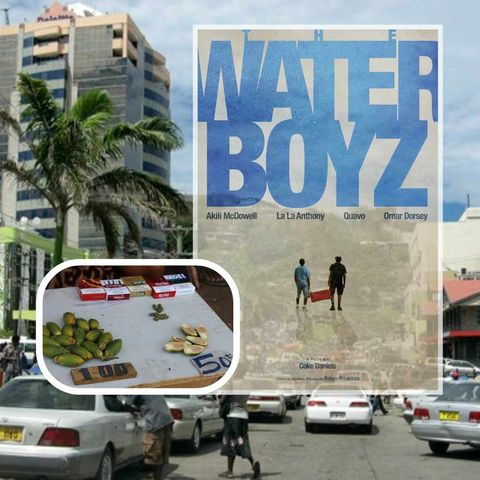Watching The Waterboyz, I could not help but feel a deep connection to the street vendors of Port Moresby.
The film tells the story of two young men: one trying to make an honest living, while the other turns to crime to survive.
Their struggles reflect the daily challenges faced by many street vendors here, who, despite their best efforts, often find themselves caught between survival and crime.
In Port Moresby, life is difficult for many, and yes, the cost of living continues to rise, making essentials like basic food like rice, tin fish, sugar, flour, and fuel harder to afford.
Stable jobs remain limited, with only around 30% of the population in formal employment – as a result, many people turn to street vending to make ends meet.
They sell betelnut, cigarettes, snacks, and other goods on the city streets to support their families.
Though this informal work helps them survive, it is not without its challenges.
This year, the situation continues to get worse for many, as inflation pushes prices of goods and services even higher, while crime has risen significantly, which the current government is working strenuously on to improve the lives and livelihoods of the population.
The Media Council recently revealed that in the last 12 months since October 2024, 263 deaths had been reported in local media reports, which highlights the rising violence and crime rate in the country.
The government, with the assistance of the Royal Papua New Guinea Constabulary has responded by introducing and implementing the Harim Tok and Senisim Pasin protocols to regulate street vending and maintain public order.
While the intent is to reduce crime, these measures place additional pressure on vendors, restricting one of obvious ways to earn a living.
The story of The Waterboyz mirrors this situation.
In the movie, one-character fights to survive through honest means, while the other turns to crime for quick money.
In Port Moresby, many vendors find themselves in a similar position.
As the crackdown on street vending intensifies, some may resort to petty crimes like bag snatching or even armed hold-ups to survive.
While the police aim to reduce crime, limiting street vending isn’t the root cause of violence.
It is the lack of opportunity and the desperate need to survive that often leads people down a dangerous path.
Watching the film made me think of the vendors’ daily struggles—the worry of police crackdowns, the constant risk of crime, and the pressure to earn enough to survive.
Much like the characters in The Waterboyz, these vendors show resilience, doing what they must to provide for their families – some with innovative and creative ideas like zigzagging through traffic to sell, despite the challenges they face.
The Waterboyz is more than just a film; it’s a reflection of the reality many people face every day.
The movie speaks to the struggles of survival, the choices people make when pushed to their limits, and the resilience required to endure tough circumstances.
Similarly, Port Moresby’s Street vendors demonstrate the same strength as the characters in the film.
They face an uphill battle to make an honest living, but the constant threat of police crackdowns and rising crime makes their situation even more precarious.
The real story of The Waterboyz is about the choices people make when survival is on the line, and it resonates deeply with the street vendors of Port Moresby.
Just like the characters in the movie, these vendors have to find ways to survive, even when society and the system seem to be working against them.
If we want to create lasting change, we must recognize their struggles and offer support, not just enforcement.
After all, true progress comes from understanding the people we share our city with and finding ways to help them thrive.

